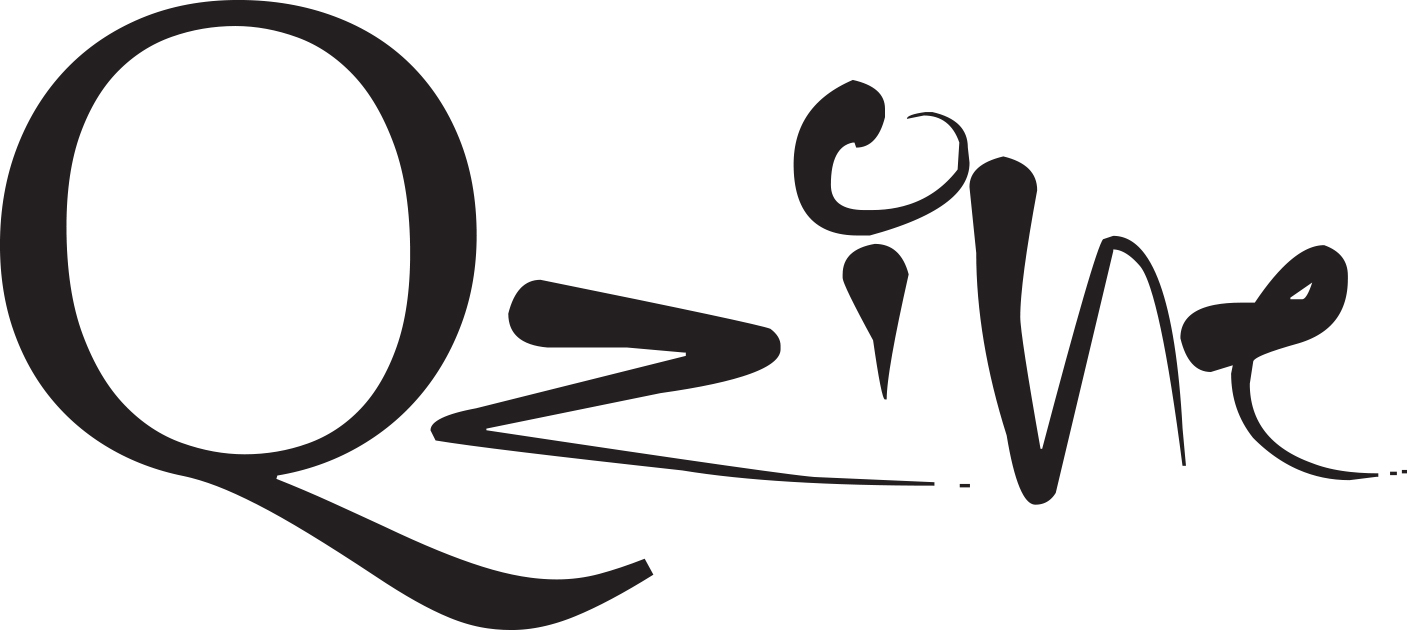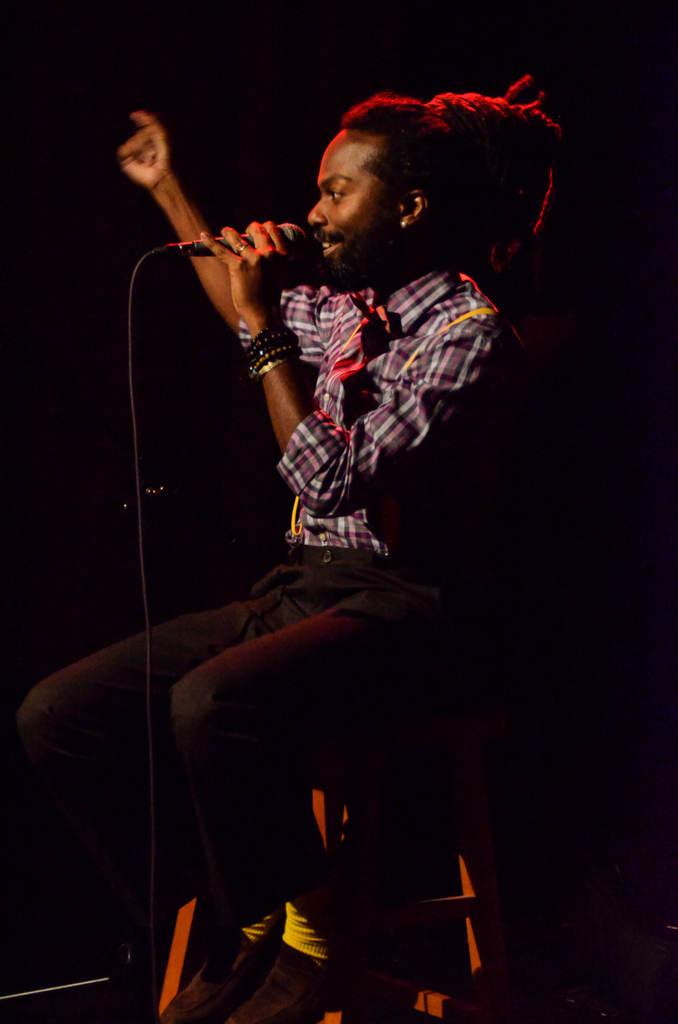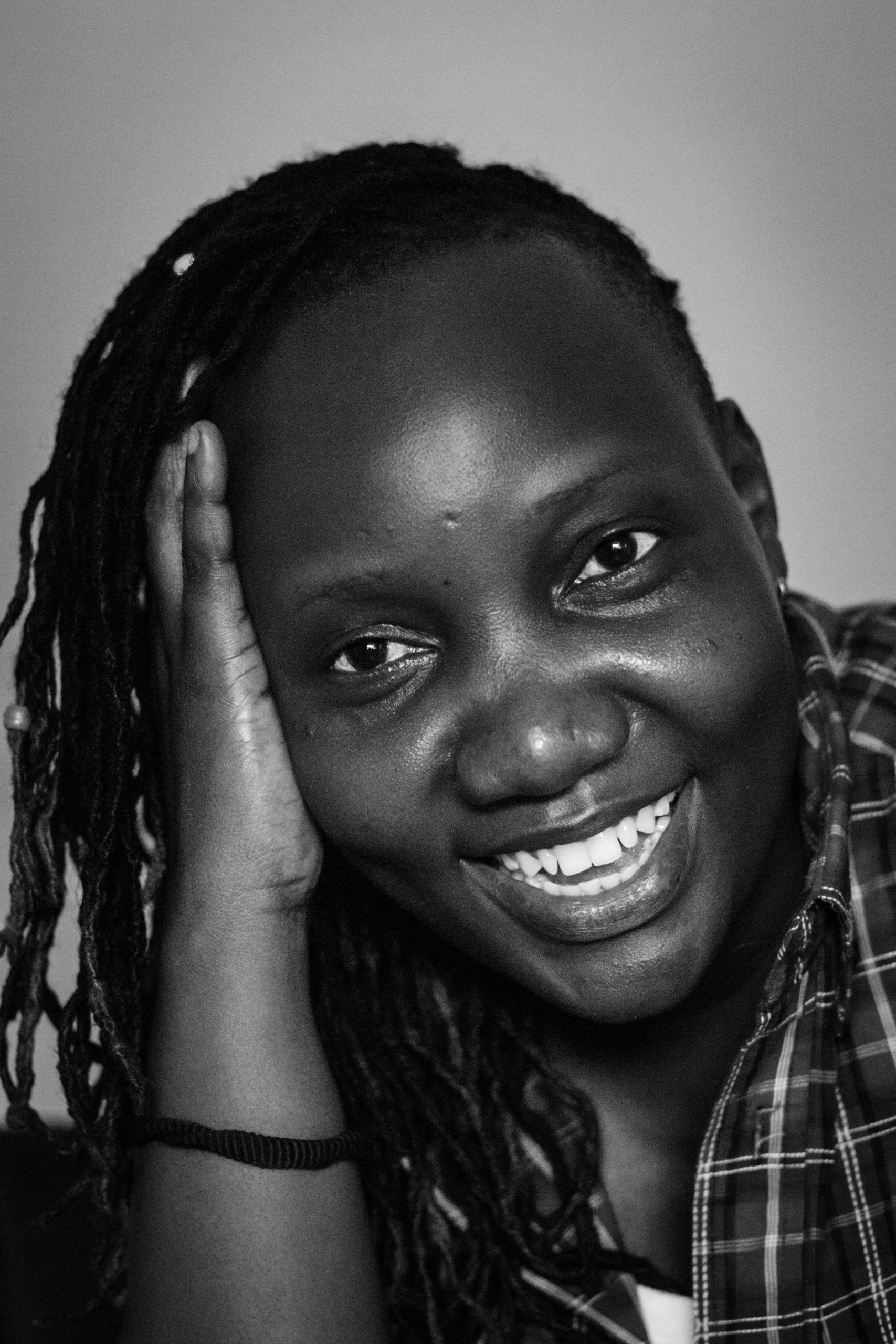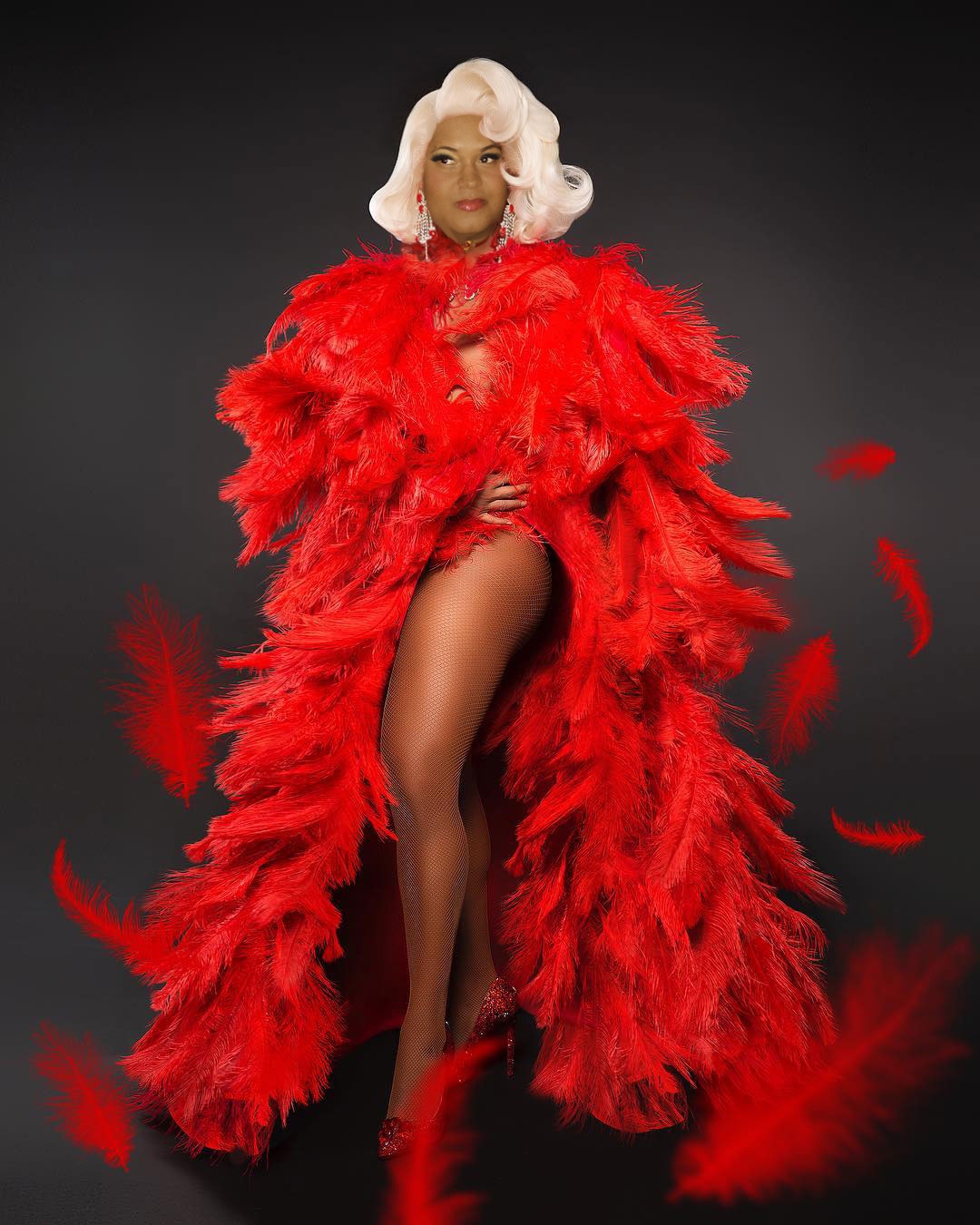Unconditional Family
A conversation with Zaina Kashega
Interview and Photos by Ruth Lu
Among the words associated with family are love, support, solidarity, and much more. Of course, not everyone’s experience of family is the same and for some, family can also mean disappointment, abandonment, and rejection. In this conversation, activist Zaina Kashega opens up about her unwavering commitment to the LGBTQ+ community in whom she has found an “unconditional” family. With Q-zine, she also talks about her different experiences and aspirations of family.
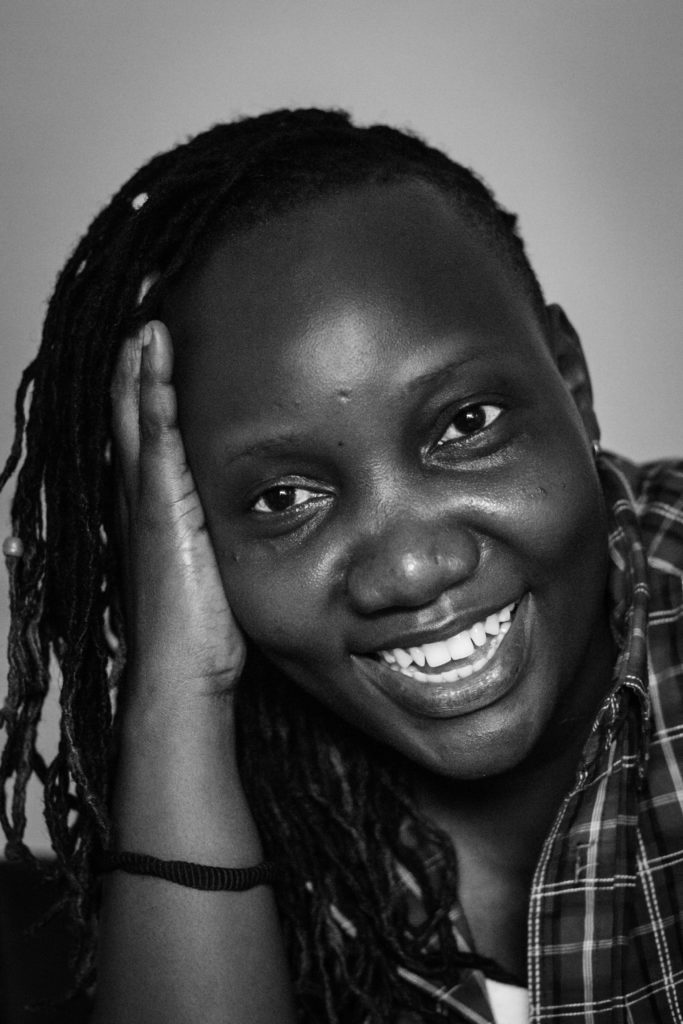
Could you please introduce yourself to our readers?
My name is Zaina Kashega. I am an activist and I fight against stigmatization, discrimination, violence and everything related to human rights violations. I am a member of two associations: Jeunialissime and House of Rainbow. House of Rainbow is an organization that helps LGBTQ+ folks reconcile their faith and their sexuality. We collaborate with religious leaders because we have come to understand that they can be the source of a lot of rejection of LGBTQ+ people from their families. Religious leaders like pastors and imams are held in high esteem by their followers, so when they preach hatred towards LGBTQ+ people, it impacts how families treat their LGBTQ+ children once they discover their sexual orientation or gender identity. Children are rejected and cast out of families. So, we decided to directly engage with the root causes of this issue: the very people who preach these harmful messages and propagate intolerance.
At Jeunialissime, I work as a project manager and run a project called Talents Pluriels (Multi-faceted Talents) that aims at empowering LGBTQ+ youth in entrepreneurship and in their job search. We work with local businesses and organizations to raise awareness on inclusion and sexual diversity. Jeunialissime also works to raise awareness and educate LGBTQ+ youth, and society in general, on issues of inclusion, diversity, respect for human rights, and strive to improve the quality of life of LGBTQ+ people.
How did you end up at Jeunialissime?
When I was in school, I had the privilege of coming out, if I can put it that way. My family thought it was a phase so they continued to pay for my education and I was able to graduate. It’s only later that they realized that I was serious. Since they wanted me to further my education, they sent me to Kampala in Uganda so that I could develop my English and eventually go study in Canada. However, they changed their mind because they thought that sending me to Canada would make me worse sexuality-wise. So they made me return to Congo, and that’s when my nightmare started. The looks from my siblings, the rejection, the slander, it all became a lot harder for me to handle. So I made the decision to not bother them anymore and took off for a city where I didn’t know anyone.
Since I studied law, I used the move as an opportunity to sit for the law exam but I never got the results. I had to look for something else to keep me busy and that’s how a friend referred me to an association called Oasis. These were my first steps in activism. Later, I was invited to join Jeunialissime. At that time, the organization was almost entirely composed of gay men and they needed a lesbian for some of their projects.
Three years have passed since I took the law exam, and I still do not know the results. They’ve recently announced that another round of applications will be open soon so I’ll try to retake the exam then. Who knows, I might become the first openly lesbian judge in Congo! (laughs)
Having come this far, what would you say you’ve learned about yourself since joining Jeunialissime?
I would say that I didn’t know how intensely the activist fire was burning in me. I knew that I abhorred injustice but I did not know to what extent. It is through this work that I got to meet people who had suffered violence and grave injustice and discovered my own deep hatred for injustice.
Working for my community also made me realize how little of my needs my biological family was able to meet. Being in an environment with people that I can call family, people who are like me, has been wonderful. Working in a place where I’m fulfilled, where no one cares what I wear or whom I associate with, where the only thing that matters is the work I contribute to the community, has had such a positive impact on me. And I can even say that LGBTQ+ organizations are the first entities to have ever given me a real job. Before that, I tried to make ends meet through small entrepreneurial projects but despite my degrees, I couldn’t get a job. Oasis, House of Rainbow and Jeunialissime opened their doors to me and gave me a chance to prove myself, and for that, I am grateful.
Could you tell us a bit more about how your work in the LGBTQ+ community has shaped your view of family?
Today, my conception of family is far from the one I held on for a long time. I used to think that my family consisted of the people I was related to by blood. With time, I understand that family is much more than that. Today, I think of family as the people who accept you as you are, whom you share values with, who support you in the things that are important to you. I’ve come to understand that family does not judge you. Many think of family as people to whom we are similar, people who look like us. But I have come to understand that family is about accepting the other person unconditionally. There shouldn’t be requirements for me to accept them. Family strives to understand, no matter what.
The LGBTQ+ community is the family I wish I had when I was 10, 11, or even 18. It would have saved me from making a lot of mistakes and helped me be more focused, which would have been much more beneficial to me and my community. Growing up not really understanding who I was confused me. Sometimes, I feel like I discovered my family a little “late”, but I am making up for it now. In fact, I would describe my commitment to the LGBTQ+ community as being at the point where I would be willing to die for the community. I’ve been arrested before, not because of my activist work, but because my gender expression bothered some people.
Today, who would you say is your family?
First and foremost, my blood family. They are the ones you don’t choose and I am deeply grateful to them, especially my older sister who has been very supportive and has helped me to get rid of my insecurities.
Then there is my partner. She started in activism long before I did without even realizing it. Then she stopped. Since being with me, she’s been more active in the community and really wants to learn more. Now, she attends community events and supports me in the way I’ve always dreamed of being supported by a partner. There is also my boss whomI consider family. I think of him as the dad I never had, although he’s not that old. He is a boss, a friend, a brother, a father figure, and so much more. Lastly, other members of the community. They are like siblings to me. We get on each other’s nerves, we fight, but we always work things out in the end. But my number one family is my partner.
How do you envision building a family of your own, with children perhaps, keeping in mind that medically-assisted procreation is not really accessible to LGBTQ+ people in Congo?
To me, my family is first and foremost my wife and I. I love children, but not to the point of having any of my own. I can’t imagine myself being pregnant, and it has nothing to do with the fact that I am a lesbian. I just can’t imagine my body having to go through all these changes just so I can have a child. But if my wife wants to, I’m open to her carrying our child. I won’t force her. If she wants to have a child and wants to carry it or if she’s open to adoption, those are options we can explore together.
It is important to understand that there are very few lesbians here who are 100% out. Even when they are financially independent, many are convinced that to have a child, they must sleep with a man. And there are others who are so afraid of their family that they always have a guy on the side, what we call in Lingala “mufiniko”, which is a sort of social cover. So many lesbians choose to sleep with men to start their family.
If I were to start my family, we would do it with a gay man, but I wouldn’t want someone sleeping with my girl. I don’t know if you’re familiar with the term “syringe babies” but basically, it refers to artificial insemination. If we don’t have the money to go abroad and conceive our child, we’ll make our little “syringe babies.” And of course, if the gay man in question wants to be part of the child’s life, that’s fine. He can be there as an uncle, or even as a father if he wants, but it will be our child, my wife and I. We won’t ask him for anything in return. But these are conversations that will take place beforehand.
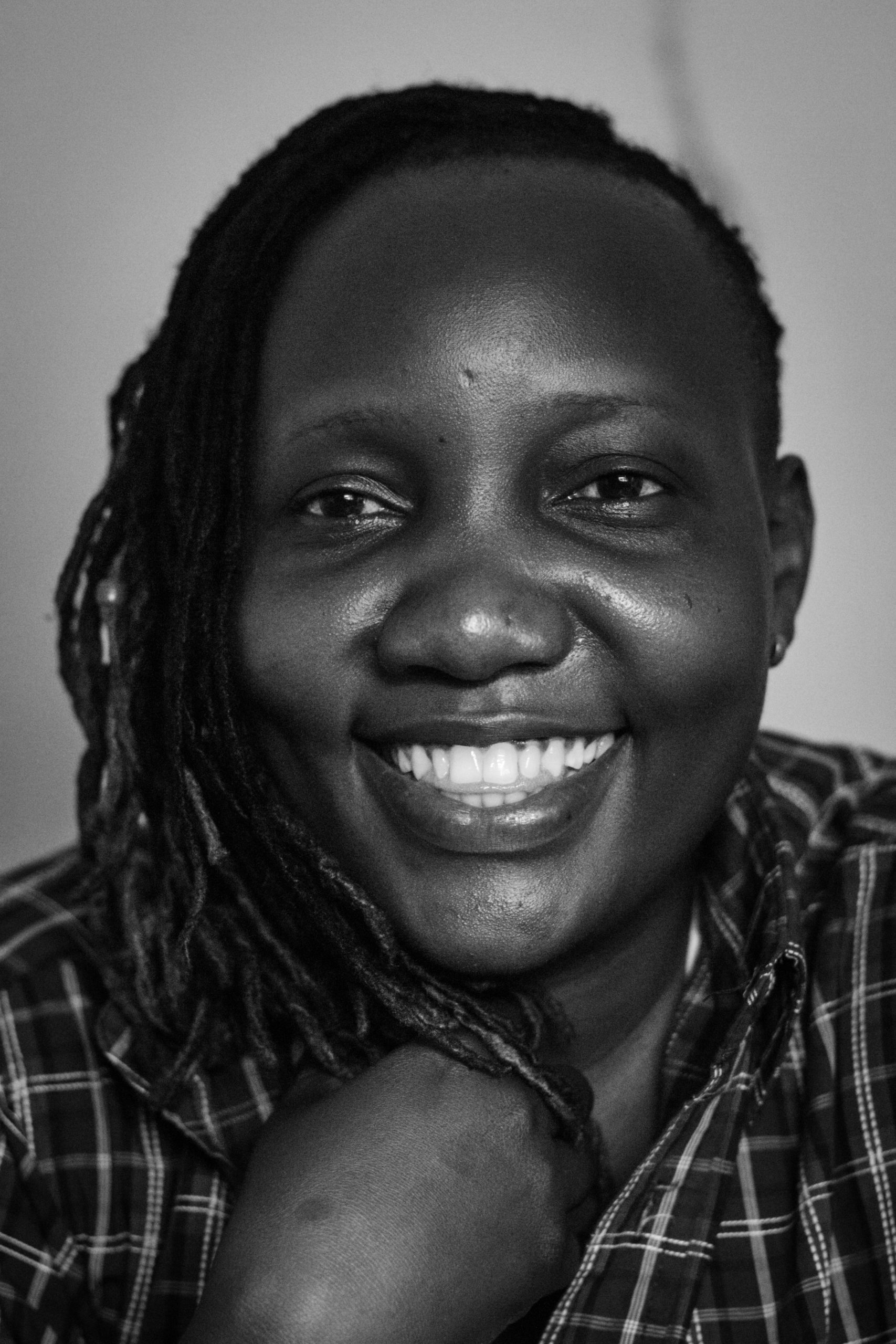
If you could choose four people to be part of your family in your next life, who would you choose and why?
The first person I’d choose is my dad because he passed away when I was very young, and I’ve always been convinced that if he were still alive, he would have understood me and perhaps would have been able to guide me. I think he would have accepted me and would have made it easier for me to get accepted into the family.
The second person is my mom because she’s an amazing human being. She didn’t reject me when she found out I was gay. I’m from a Swahili tribe, and in our culture, saying “mom, I like women” is just unthinkable. It’s like wishing death upon yourself. Yet, I did it. I’ve always been known to have a strong personality in the family, and when I came out, my mom said “yes, I knew. I was afraid for you because I know things won’t be easy out there.” This was so powerful coming from a woman who didn’t have any formal education.
The third person would be…hmmm… Although I was rejected by my family, there are still people I like and would like to see again in my next life (laughs). Let’s just say the third person would be an ex. She was an ex that really helped me discover the beauty of being with a woman.
And lastly, the fourth person I would choose is my wife!
